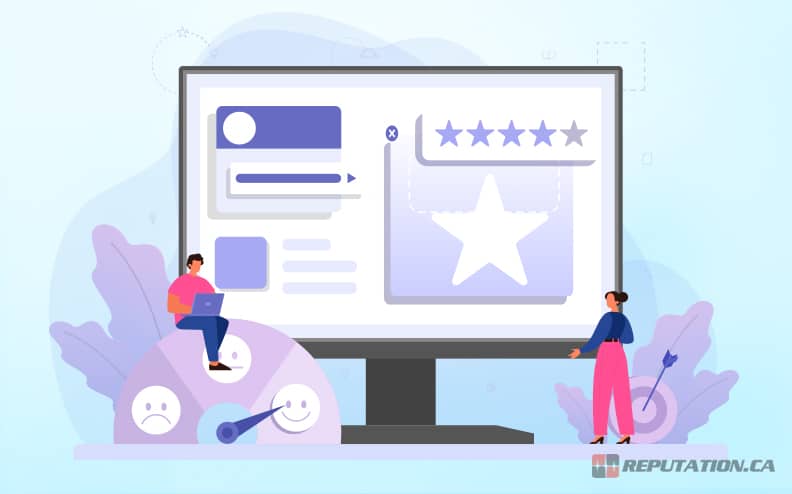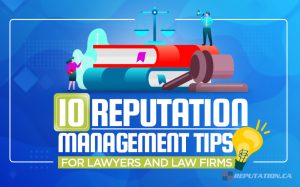Privacy has become an illusion in modern society since information is constantly flowing through the internet. Complete strangers can locate your online presence with virtually no issue with a few taps on a keyboard. Once you have volunteered information about yourself to the internet, it is permanently accessible to anyone with the right resources and research skills.
Fortunately, most online platforms allow you to control your profiles or even remove your information from their database if you never consented. Unfortunately, your control over your information is remarkably limited, considering you are the subject of that data. The problem is that your name becomes public information the second you develop an online presence.
Search engines like Google specialize in producing the most relevant information to a user’s search parameters. Whether they are researching an item, location, company, or an individual, Google will bring up the most accurate data possible. This means users might access the information you are trying to keep private or personal profiles you want to keep away from customers of your business.
The algorithm employed by Google’s search engine is one of the most well-developed in the world, so your best bet to overcome these issues is to change the results. We are not saying you can change what the results say, but you can alter which results Google views as the most relevant. The question is how, so let’s dig in.
Step #1: Research Yourself
When trying to overcome the search results engines like Google produce about your name, the first step is figuring out what those results are. The best way to do that is to use Google to look yourself up by typing your name in the search bar. If you are looking into information about your private life or information that might intersect with your business, your name and your business’s name are equally important.
The biggest problem is that Google also uses the user’s preferences to filter results. If you are researching yourself via your Google account, your search habits, profile settings, and filters could skew the results and leave out crucial information. Therefore, there is an important step you must take before hitting the ‘Search’ button.
Most web browsers offer a special “Incognito Mode” setting that allows users to search for information without leaving a digital footprint. This can be helpful when trying to keep your search habits to yourself, but it has a secondary feature. Any search performed in Incognito Mode automatically ignores your Google profile’s preferences. Employing Incognito Mode in your search will enable you to look yourself up without your Google account affecting the results.

To enable Incognito Mode in Google Chrome, you need to click on the button in the top right of the Chrome window that looks like 3 vertical dots. From there, a dropdown menu will appear with an option to open a new tab in Incognito Mode. Clicking on this will open an incognito tab you can use to perform the search. Other browsers have similar steps to use their private browsing modes as well.
Once you have completed the search, you can peruse the results and see what is commonly referred to by others who use Google to research you or your company. This information is critical to the next steps you will have to take to ensure your reputation remains intact.
Step #2: Change What You Can Control
Once you have gathered the results your name produces when submitted to the Google search engine, the next step involves you working to change what you have control over. While you will not have full control over everything that Google turns up about you, there are certain websites where you retain complete agency over your data. The first stop will be any social media accounts the search produced.
We live in an era where social media has replaced most forms of traditional communication. Social media also provides insight into the kinds of activities, politics, religions, and ideologies in your life. Unfortunately, social media has become a weapon for certain demographics who believe that those concepts that oppose theirs make you an enemy.
While a post or comment you made 5 years ago might have been innocuous at the time, cancel culture has made it so that your past entries are suitable cause to deny you a future. Most companies will not employ someone embroiled in this kind of controversy, and companies that are the subject of that controversy risk losing some business.

It is in your best interest to go through your social media accounts with a fine-tooth comb and delete any posts or comments that might be misconstrued or viewed as “problematic” within today’s socio-political climate. Unfortunately, this is not limited to just changing a Facebook post. You must ensure that every social media account you control is modified as needed. This includes:
If you have profiles with any or all of these platforms and you might have made a comment or left a post that they could take the wrong way, you must change them. You should also take this opportunity to create accounts with these platforms if you are missing them. Unfortunately, maintaining an active presence on all 3 of these platforms is becoming a requirement for success in most situations. Because these social media accounts are meant to be found, hiding them will not help you. Ensuring the accounts meet the standards of the relevant audiences will ensure that those who find your account through Google will not be disappointed.
Step #3: Take Advantage of SEO
Part of what makes Google such an effective search engine is the algorithm it employs to bring users the most relevant results. To some, the way Google pulls up all the relevant information might be eerie, but there is a method to how these search engines operate. Like all search engines, Google starts by comparing keywords from the search parameters to the content of websites.
Your name is the primary search parameter that Google will use to provide results to the ones researching you. While your name is the basis of their search, most people will refine the parameters by looking for specific events, products, or affiliations that might be tied to you. These additional parameters are called “keywords,” and there are numerous keywords for every major industry and ideology. When pulling results, Google considers these keywords and will prioritize any with terms that match or relate to the keywords used.
This algorithm is extremely effective but might make it easier for people to access information no longer relevant to who you are or what you do in the present. Fortunately, you can manipulate Google’s algorithm to focus on the results you want it to rather than the ones you want to outrank.
You can do this by creating new results that incorporate the most commonly used keywords associated with you or your industry. This is known as search engine optimization (SEO), and it allows you to skew the algorithm in your favor so you can outrank any harmful results that might appear otherwise.

SEO can be difficult to implement if you are unfamiliar with the keywords relevant to your situation, but learning about them can mean the difference between success and failure. To use SEO properly, you must create new content on your associated social media profiles and blog websites. The content you create must feature the keywords associated with your name to draw attention away from other content that might misrepresent you. That said, you should avoid terminology that might make things worse since some terms are harmful by themselves.
If you are looking into finding remote work, you can also use SEO to draw attention to your talents by registering with a portfolio website. These websites allow you to build a repertoire of your professional talents, such as articles, projects, or anything else that professionals might do remotely. Alternatively, you can make your own portfolio website dedicated to your content, but the key is having a portfolio available via Google’s search engine. By littering the content with keywords, you can turn your portfolio into a primary result in all subsequent Google searches for you.
If the SEO is primarily focused on your social media presence, you can work to build a more prominent social media background that produces a positive image. SEO optimization for social media is generally linked to hashtags and tagging other users that draw attention. However, you can employ friends to help build your profile up by having them generate content on their own pages that relates to you. This helps bury other content under the supplementary posts about you on their profiles that will tie back in with your personal profile.
SEO optimization is a complicated process that will be very challenging if you are not trained. Unfortunately, using SEO to your advantage is one of the best ways to avoid reputational damage from less pleasant results about you. Nevertheless, there is one last tactic you can use to limit negative exposure. Unfortunately, it is the most unreliable tactic available to you.
Step #4: Try to Have the Negative Content Removed
There will always be other social media profiles or 3rd party websites hosting information about you that you would prefer to remain buried. This information can include ill-advised posts or jokes from your past or personal information that puts you in danger. Depending on the circumstances, this information can also include contact information, addresses, or financial data. The more information about you circulates, the higher the risk to your safety and reputation. Unfortunately, most domains retain complete control over the content posted on their website, but it is possible to request takedowns.
The Google search engine has a system that enables you to request results be removed if they present a threat to you. Specifically, any content that lists personally identifiable information can be taken down within Google’s parameters. Unfortunately, Google cannot remove this content from other websites. The best Google can do is remove content from its own domain, and it must assess and approve your request before they act.

To remove content from a private domain, you must contact the owner and file a request in accordance with their own policies. Essentially, you cannot remove content you did not create without their consent, and the decision lies solely with them. In extreme cases, you might be able to pursue legal action against them if the information they are hosting violates your rights. Unfortunately, such situations are rare, and your only recourse will be to employ the tactics from the previous sections.
If your information is circulating Google’s search results, it might cause harm to your reputation. Allowing reputational damage to go unanswered can severely impact your life, so you should curate the information available to others. Unfortunately, this level of scrutiny might not be something you can do without help.
Take Your Reputation Back!
Nowadays, there are few things as important as our reputations. When our public image deteriorates in the eyes of the public, it can cost us our livelihoods, relationships, and dignity. While some information is harmless, the rest can be devastating if seen by the wrong people. Your name is almost certainly available in Google’s database, and there will likely be search results that dig up old content. You must ensure those results do not jeopardize you or your future and remove or bury them if they are harmful. Unfortunately, reputation management on this scale is not something an individual or small company can handle independently.

We at Reputation know how frustrating it is to have your information circulated into the wrong hands. That is why we have made it our mission to preserve our clients’ public image through any means necessary. Our services enable us to curate your social media presence, file takedown requests on your behalf, and regularly assess the state of your reputation. If you’re interested in any of these services, be sure to visit our website today and let us help you take your reputation back!











